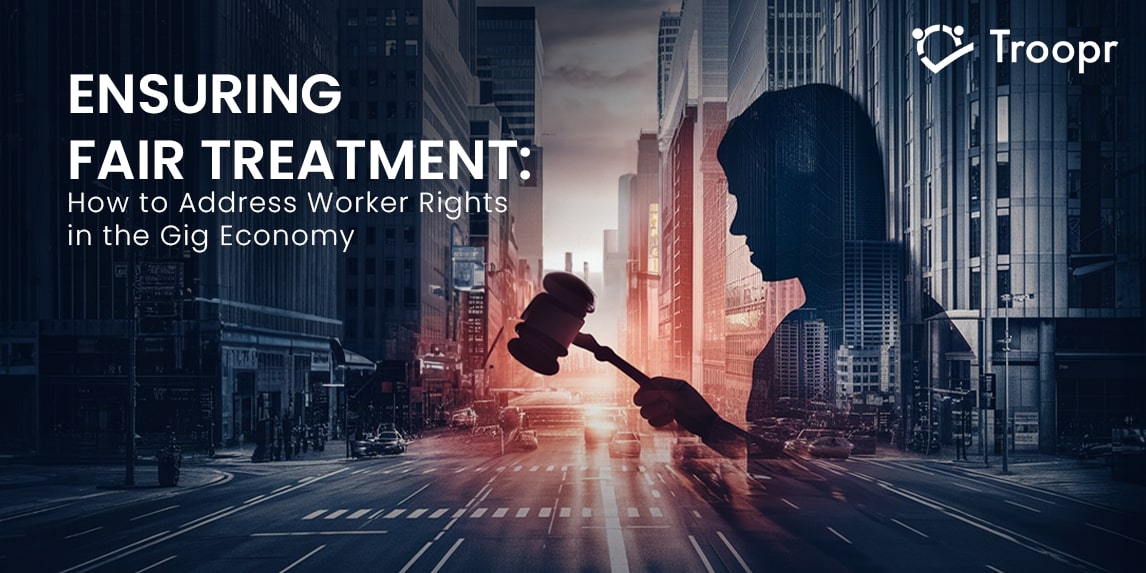
Ensuring Fair Treatment: How to Address Worker Rights in the Gig Economy
What Exactly is the Gig Economy? How Does It Benefit People Who Work Part-Time?
The gig economy in India is a work environment where individuals engage in temporary, flexible jobs, using online platforms or apps. These jobs (“gigs") can range from part-time bartenders, waiters, stewardesses, assistant chefs etc.
Part-time workers in India benefit from the gig economy in several ways. It allows them to have:
- Flexible work schedules
- Additional income
- Quick and Immediate Payments
- Various job opportunities
- Plenty professional experiences
The number of gig workers in India has reached 7 million and is expected to reach 25 million by 2030.
What are the challenges faced by Gig Workers and why they must be informed of them?
Gig workers, including those in roles like bartenders, waiters, stewardesses, and assistant chefs, often face significant violations of their rights in India. These violations can range from inadequate pay, unsafe working conditions, and limited job security. Gig workers must understand their rights, including their entitlement to fair wages, and safe working environments.
By being informed about their rights, Gig workers can protect themselves from exploitation and advocate for fair treatment from employers. This empowers Gig workers to challenge instances of abuse or discrimination and seek relief through legal channels if necessary. Additionally, awareness of rights violations within the gig economy enables gig workers to unite and collectively demand better working conditions and legal protections.
How Businesses and the Government Can Help Gig Workers Get Fair Treatment and Rights?
Businesses can implement various practices and systems to be more accommodating towards gig workers and their rights in India.
- Prioritize safe working conditions: Provide proper training on workplace safety protocols and ensure access to necessary safety equipment for gig workers.
- Offer fair compensation: Strive to offer competitive wages and additional benefits such as health insurance and paid leave to gig workers.
- Foster a culture of respect and inclusivity: Address issues of discrimination and harassment within the workplace and provide channels for gig workers to voice concerns and grievances.
- Provide opportunities for skill development: Recognize the contributions of gig workers and offer avenues for skill enhancement within the organization.
There's also a growing demand for laws to safeguard gig workers in India. These regulations would grant gig workers crucial benefits such as accident and health insurance, maternity leave, and pension plans. The Indian government has taken steps to support gig workers through initiatives like the Pradhan Mantri Shram Yogi Maandhan Yojana, which offers them pension benefits. Furthermore, the recently introduced Code on Social Security, 2020, aims to enhance social security benefits for gig workers, ensuring their overall well-being.
How “Troopr.Works” to Keep Workers Safe?
Troopr is dedicated to ensuring worker safety through various measures like:
- Ensuring service professionals can access work sites for safety assessment and service provision.
- Collaboration with clients to uphold health and safety standards for service professionals.
- Prompt communication of workplace risks or safety condition changes to service professionals and Troopr.
- Requirement for clients to provide adequate supervision, training, and induction for service professionals.
- Encouragement for clients to make reasonable adjustments per anti-discrimination laws.
Workers can contact Troopr at 9967493912 / contact@troopr.works in case of any grievances.